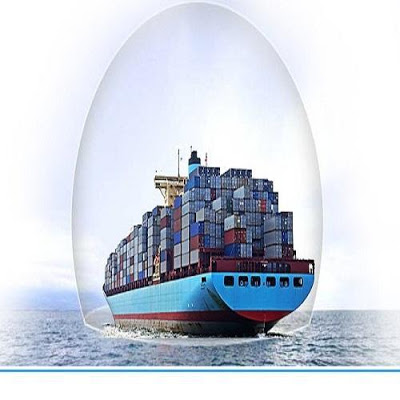Ms Gbemisola Saraki, Minister of State for Transportation, on Tuesday said the federal government had come up with some initiatives to address the challenges confronting marine transportation in the country.
Saraki said this at the International Maritime Week (LIMWeek) 2021, organised by Zoe maritime Resources Ltd., themed: “Seafarers and Maritime Capacity at the Core of Africa’s Shipping Future.”
She noted that the issues, when addressed, would lead to improved productivity, create employment opportunities and ensure sustainable development.
“Maritime transport sector is critical to the economic development of Nigeria. It contributes significantly to the country’s foreign exchange earnings from both cargo and other shipping activities.
“Unfortunately, there are factors militating against the smooth running of marine transportation, which are: Piracy, Lack of maritime transport policy to regulate the maritime sub sector,” she said.
She added that freight rates, technology and institutions had emerged and grown while human resources had not been trained-up to keep pace with these developments.
“Standardisation of customs procedures and failure to harmonise according to World Customs Organisation (WCO) standards, Labour and labour productivity continues to pose a significant challenge.
“On a policy level, the industry suffers from a general lack of political drive to not only keep up with emerging international trends but to improve the nations responses to them.
“Woefully inadequate investments in port infrastructure, out-dated and disconnected legislation which neither supports the growth of the industry nor the effective facilitation of trade to mention a few,” she said.
Saraki listed some of the initiatives introduced by federal government as combating piracy in the Gulf of Guinea through the Deep Blue Project, which was initiated by the Federal Ministry of Transportation in collaboration with Ministry of Defence.
Others, she said, are: training and re-training of Seafarers through the National Seafarers Development Programme (NSDP); Development of Draft National Maritime Policy, to ensure sustainability and advancement of the maritime subsector.
She said due to paucity of funds, the government had devised a way to develop the ports through Public Private partnership (PPP) arrangement.
Also, Mrs Heritha Muyoba, Acting Chief Executive Officer, Namibia Drydock and Ship Repair (Pty) Ltd., decried the number of African countries whitelisted by the International Maritime Organisation.
Muyoba noted that there was need to get more African countries to be whitelisted so that it would enable the region’s seafarers to serve on international ships.
She called for collaboration among African countries, adding that out of the 54 African countries, only 38 had the potential to train their seafarers, and training was key to their development.
“In global supply and demand of seafarers, there are 1,447,500 seafarers, 770,000 officers and 573,500 ratings.
“The Philippines is the biggest supplier of ratings, followed by China, Indonesia, the Russian Federation and Ukraine While China is the biggest supplier of officers, followed by the Philippines, India, Indonesia and the Russian Federation, where is Africa?
“Africa needs to use its maritime competitive advantage by ensuring that their seafarers are trained, collaborate, create satellite campuses, spend money together to give skills to them,” she said.
Also, Mr Sune Krogstrup, Ambassador of Denmark to Nigeria commended Nigeria for the giant stride to improve the maritime domain, promising Denmark’s support in fighting piracy in the Gulf of Guinea.
“We have deployed our experts, helicopter, military personnel to ensure support to Nigeria on the fight against piracy,” he said.
Mrs Oitsematosan Edodo- Emote, maritime lawyer and Chairman Zoe maritime Resources noted that the COVID-19 pandemic had underscored the importance of seafarers in international trade.
She added that there was need to build maritime infrastructure to ensure smooth operations.
“The forum is an avenue for discussing issues in the industry as regards seafarers and international trade and prefer solutions and we have capable panelists that will do justice to that,” she said.




